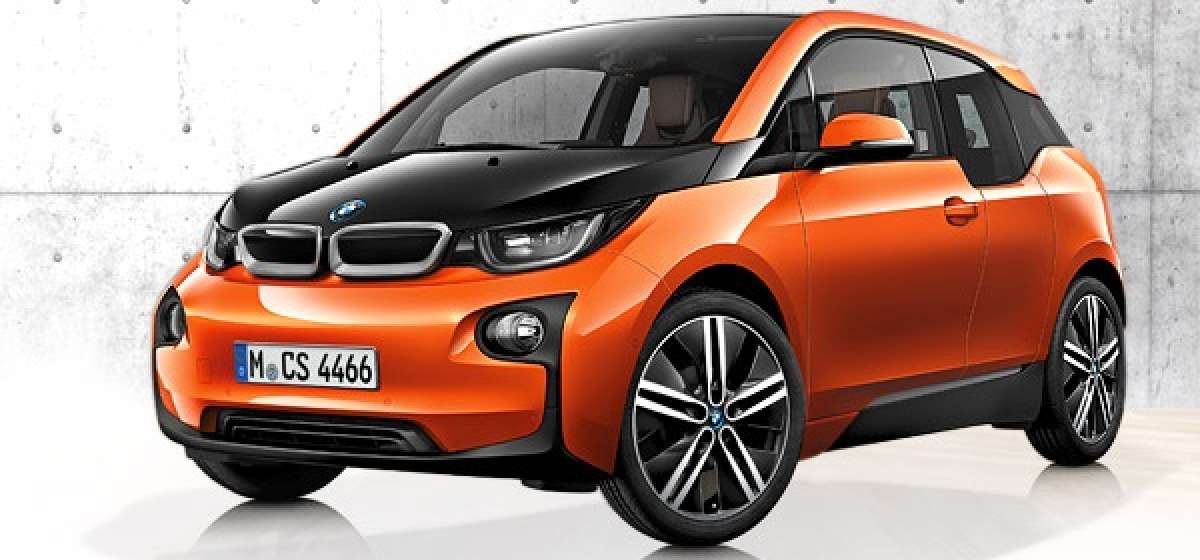Promoted as the first electric car to be designed from the scratch, it has received extreme reactions on its design. BMW claims that it has used the feedback and data from its ActiveE program extensively in its design of the i3. But one of the decisions has raised a lot of questions among the potential buyers of the car. It is the range of the car.
The predecessor model, ActiveE weighed in at a massive 4,000 lbs and it’s 32kWh battery provided it a range of 80 - 100 miles. BMW i3 with the use of aluminum and carbon fiber weighs as much as 1,300 lbs less. So if BMW had retained the same battery size, it would have had a very impressive range.
In fact, during the launch of the ActiveE program BMW employee Tobias Hahn had said, "While you are driving the ActiveE, I want you to imagine this exact same powertrain in a car that weighs 600 kilos (1,300 lbs) less.” Imagination did run wild. But BMW chose to drop the battery size to 22kWh retaining the range to be the same as the ActiveE at 80 - 100 miles. The eco pro+ mode might add another 20 miles to this range.
The most successful electric car thus far has been the Model S from Tesla. This one weighs around 4,650 lbs and comes in with two battery pack sizes - 60kWh and 85 kWh, providing a maximum range of 265 miles.
BMW claims that the average American driver logs no more than 40 miles a day and hence their decision to reduce the battery size and stick with an 80 - 100 miles is justified. Clearly, the reduced battery size means faster charging times. The i3 will recharge in three hours from a 220-volt 30-amp charger.
The range though is indicative and is affected by many factors including the weather. Electric cars lose up to 20% in cold weather. The deterioration could be more in extreme cold waves such as the one the North East experienced recently. Also over a period of time, the batteries are going to degrade and would not provide the same range as the new ones.
Of course, there is the range extender option. This is a rear mounted, 650 CC, 34 hp, gasoline powered two cylinder engine that adds almost another 60 miles to the range. This option would add another $3,850 to the costs and increase the weight of the car by 400 lbs. The car would then not be fully electric and would need the regular maintenances that otherwise would not be required. There are already concerns on the electric only privileges lost if this option is added.
This has generated a lot of discussions amongst people who are driving electric cars and those considering it. A lot of people have mentioned that even if not the 265 mile rating of Tesla, they would have been comfortable with a 150 mile rating. But that is not going to be possible with BMW i3.
Is the decision by BMW the right one? What would be the ideal range for an electric car to become mainstream? Do weigh in with your thoughts.
Written by Rajesh Garga
Rajesh Garga is from New Jersey. He currently drives a BMW ActiveE and is an active participant in electric car forums.






Comments
Why cant a higher capacity
Permalink
Why cant a higher capacity battery be made available as an optional extra alongside the petrol engine?
BMW can even consider offering the new car with bigger batteries at a slightly higher rate like engine/trim level choices in conventional cars?
Range is one of the biggest limitations to more widespread adoption of the electric technology.
I am in full agreement with
Permalink
In reply to Why cant a higher capacity by Ramanathan Ven… (not verified)
I am in full agreement with you. The i3 would be perfect for me in the Northeast if it could be configured to manage 150 miles with even a 62 degree cabin temperature. Since that is not happening, I would like to have a Diesel REx to provide the emergency energy. Since that is not happening, I will get the REx and try not to drive with my tail between my legs. And I will love my new car!
But what is the real world
Permalink
But what is the real world range?
I drive my Leaf 25~40 miles
Permalink
I drive my Leaf 25~40 miles/day every day for almost 3 years now. This is very typical for a city dweller where 80% of the population lives. I have only charged the battery to 100% about 40 times in 1,000 days. Normally it is charged to 80%. The i3 appears to have 15 miles more range than my Leaf, so I think it is fine for the intended use.
80% of the population does
Permalink
In reply to I drive my Leaf 25~40 miles by gery katona (not verified)
80% of the population does not live AND work in a downtown city area, not sure what you mean by "city dweller". In fact, most people commute downtown from a suburb or nearby neighborhood. I think you are in the minority and that 80% charging an 80 mile range EV will not satisfy the average American customer.